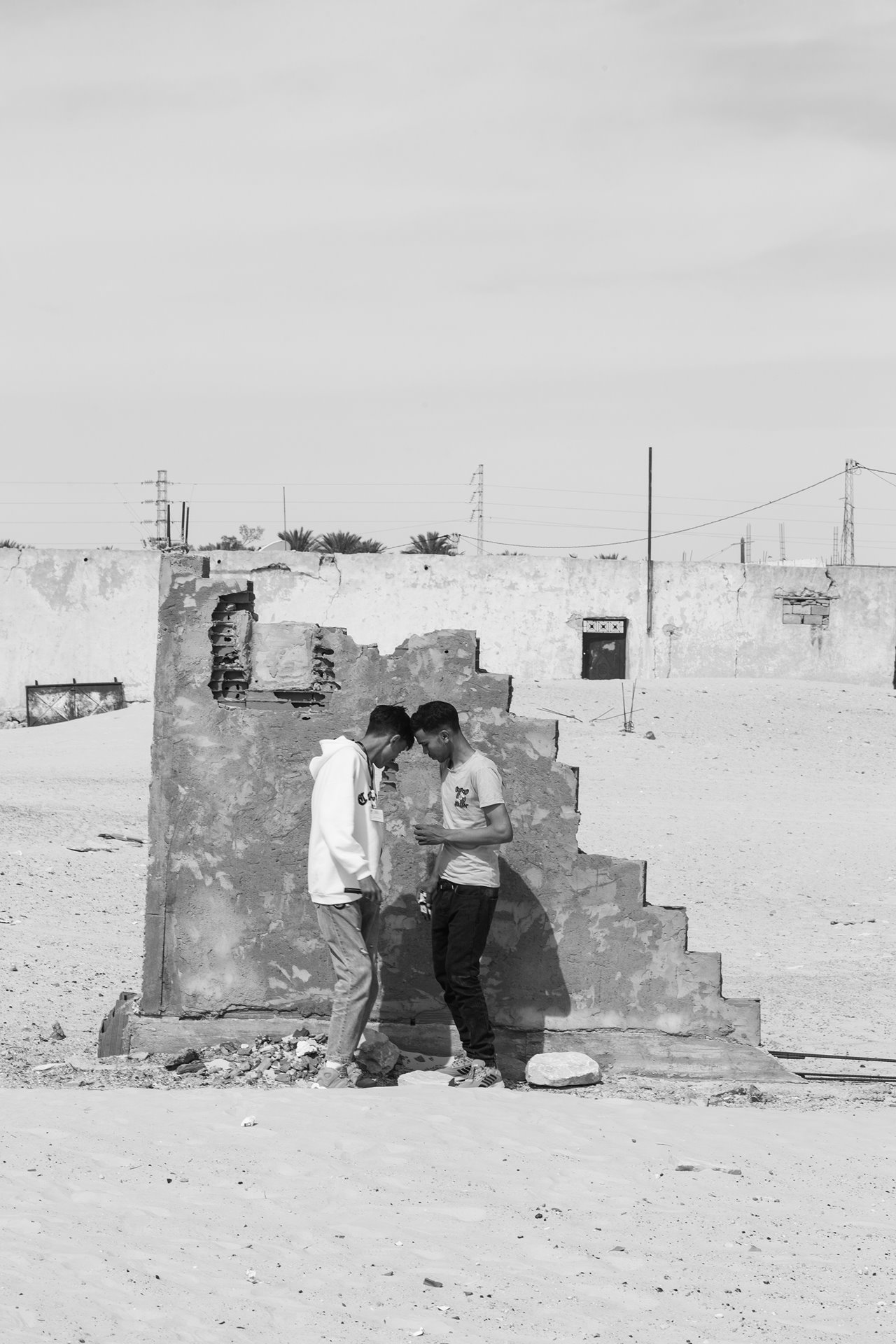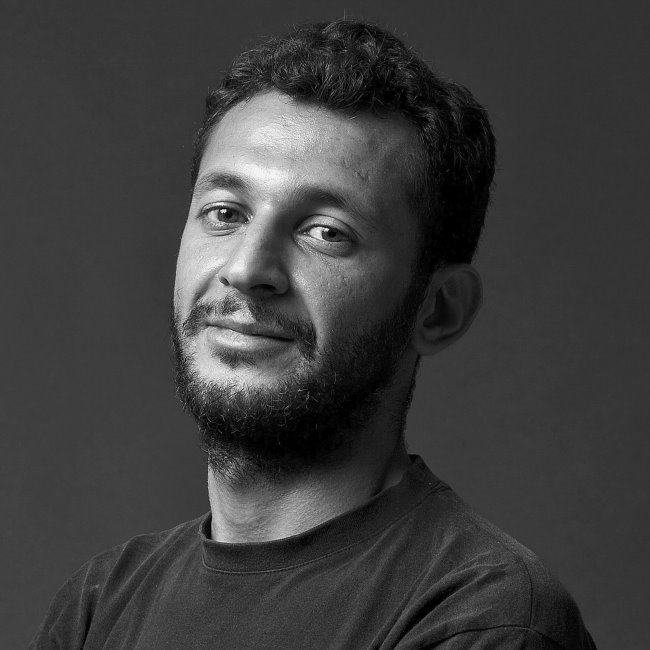Nouail, Kebili, Tunisia.
Tunisia’s 2011 revolution, which catalyzed the so-called “Arab Spring,” instilled hope in Tunisians aspiring for democracy, social justice, and freedom of expression. However, the subsequent decade witnessed political instability, persistent economic crises, and social inequality, impacting young people, especially. This project explores the lives of young Tunisians, and aims to contribute to discussion on including them in a better future.
Studies have shown thoughts of suicide to affect around a quarter of Tunisian adolescents, and depression to be common. The photographer was responding to what he sees as a malaise among Tunisian youth, but wanted to portray the situation in a broader metaphorical way. He says: “The project is not illustrative. It is symbolic. I am trying to create images which translate these countrywide feelings.”
One of the root causes of disaffection among young Tunisians can be traced to the lack of opportunities available to them. More than 40% of Tunisia’s population is aged 15–34, with unemployment of youths under 24 at around 40%, according to the World Bank. Labour prospects are particularly poor for young Tunisian graduates.
In 2022, demonstrators again took to the streets in Tunis, the Tunisian capital, protesting against soaring inflation, food shortages, and a hike in the price of cooking gas. In addition, phosphate, mined in the southwest of the country and one of the main sources of national income, presents severe health and environmental challenges.
Young people in Tunisia are coming of age confronted by challenges seemingly on all fronts. The Escape spotlights their lives, struggles and aspirations, and also their resilience and creativity.
Zied Ben Romdhane is an associate member of Magnum Photos and worked with the support of The Arab Documentary Photography Program and AIM LAB.
Are you a photographer and/or passionate about press freedom? Sign up for our newsletter to stay updated on our annual contest and to hear about exhibitions near you.

